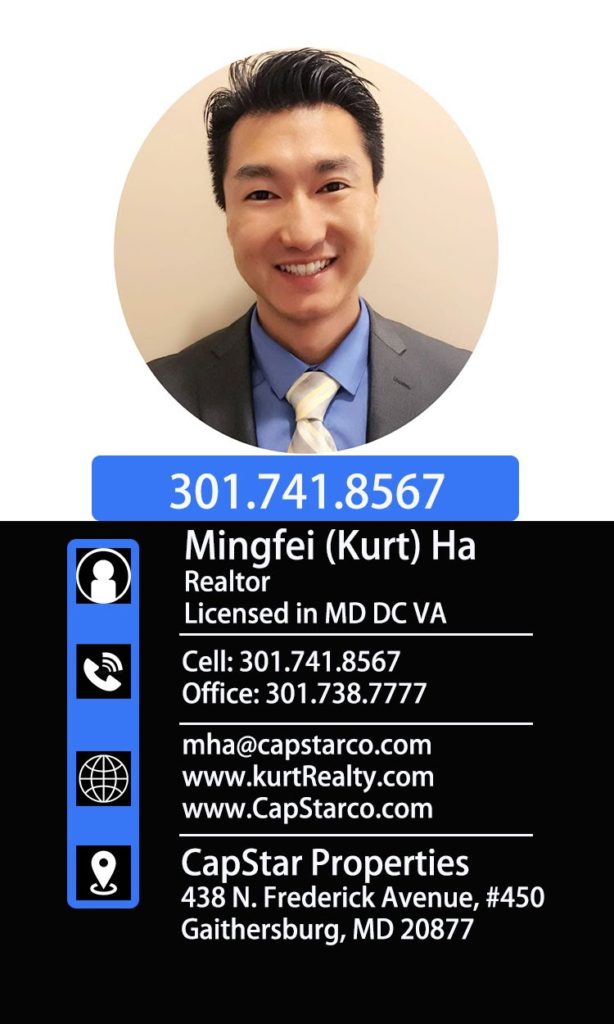Tips for Selling a House Without a Realtor
By Taylor Medine
3/13/2021
/filters:quality(60)/2020-03-11-Selling-a-House-Without-a-Realtor-CDN.png)
Before selling a house without a realtor, read how the process works and the pros and cons.
Selling a home without a Realtor may be an option if you’re trying to save money on real estate commissions. The typical real estate commission is 5% to 6% of the purchase price paid for by the seller and split between the two agents. So if you sell for $250,000, you might need to dish out as much as $12,500 to $15,000 to pay your listing agent and the buyer’s agent.
Listing your home “for sale by owner ” without a listing agent (also known as FSBO) might help you keep an extra 2.5% to 3% in your pocket. Before choosing to list on your own, read below for tips on how to sell your house without a Realtor and the potential risks of going this route.
Selling a house without a Realtor
Selling your home without a Realtor is similar to selling your home with a Realtor, except you don’t have a full-service expert advising you from start to finish. If you’re wondering how to sell your house without a Realtor, here are the general steps you’ll need to take:
1. Do the research and set a price. Review comparable homes in your area that have sold recently to have a sense of what buyers will pay.
Research how inventory is moving as well—are homes selling quickly or are listings sitting on the market? If houses are moving slowly, you may want to price your home at a lower price point to get the attention of buyers.
If you have trouble choosing a price, consider taking advantage of free Realtor consultations. “Realtors always want new clients and you can interview Realtors to [get] their thoughts on your home and what they would sell it for,” said Eric Patrick, founder of the real estate and investing blog Black Market Exchange. When Patrick sold his home in the Dallas suburbs, he learned how to price and prepare the home for the market during an agent’s sales pitch.
2. Get the home ready for showing. Prepare to show off your home at its best. Repaint walls if they’re looking dingy. Depersonalize the home as much as possible so buyers can envision themselves in the house. Deep clean the house yourself or hire someone.
Get the wood floors polished or hire a carpet cleaner to give the flooring a facelift. Fix minor cosmetic issues that could be an eyesore. Consider power-washing siding and spruce up the outside to make it inviting.
3. Hire a photographer. Book a photographer to take bright professional photos of your house. Great photos can attract buyers—a National Association of Realtors survey found 44% of buyers look online for properties, and 87% of those who look online find photos useful. Professional photos could mean the difference between someone clicking your listing or scrolling past to view another home.
4. Put up your “For Sale” sign. Purchase signage to inform the neighborhood that you’re selling. Signs also make it easier for prospects to find you when they’re coming for a tour.
5. Publish your listing. Independent sellers don’t receive access to MLS to post a home for sale, but there’s still a way to get your home listed on the database. Some brokerages offer an MLS-only listing package for a fixed or hourly fee.
6. Enlist help where you need it. Selling without an agent doesn’t mean you have to handle the entire process alone from start to finish. You might be able to hire a brokerage to host tours, take offers, negotiate the deal or prepare your contract for a flat-fee. A limited package could cost a fraction of the amount you would pay for an agent’s full real estate commission.
7. Answer inquiries and negotiate the deal. Potential buyers may come in with a low offer or they may ask for repairs. It’s up to you to decide on what you will and won’t do to close the deal. You can even get creative during negotiations. When a buyer asked Patrick for pool repairs, he and his wife decided to offer a credit against the list price to avoid having to make repairs before the sale.
8. Handle the paperwork and go to closing. The paperwork element of the sale can be intimidating without an agent. The rules for real estate transactions can vary from state to state. Make sure you understand the laws that apply to your transaction. You could also hire a real estate attorney or a transaction agent to file paperwork.
Selling without a Realtor vs. with a Realtor
Listing a home without an agent means you’ll be braving all, or at least some, of the process without someone to advise you on pricing, marketing and negotiations.
Information online can help you along the way, but there can be limits to what you can find online about comps when doing market research. Some information agents gather for you about comps and market trends may not be available to the public.
“Listing sites are amazing, but if you’re looking at a house that sold down the street, they’ll give you the price it sold at but won’t mention any concessions or credits that may have been given that will affect your price,” said Dena Raneri, a licensed real estate agent in Newtown, Pennsylvania.
Selling the home yourself means you’ll also have to deal with buyer’s agents. You’ll have to be available on weekends or weekdays to show buyers around. If you work with an agent, they take care of these tasks. Managing the logistics of selling a house may be a challenge if you’re also juggling a career and shuttling kids back and forth to soccer practice.
Selling to an iBuyer
Another way to sell without an agent, which might be less of a hassle, is to use an iBuyer or “instant buyer.” An iBuyer is a company that buys homes directly from sellers. Patrick sold his first home to a homebuyer and then sold a second home directly through an iBuyer program.
“You provide information like how many bedrooms, how many stories, how many bathrooms and your zip code. Then they give you a preliminary offer,” said Patrick.
If you accept the offer, an inspector will come out to assess your home. You’ll get a final offer that shows how much money you’ll make from the deal after they account for repairs and closing costs.
These platforms often charge a service fee that can cut into your profit, but the tradeoff is the convenience of not having to tour buyers or negotiate repairs.

Tips for selling your house yourself
Take the emotion out of decision-making. Set emotions aside when choosing the price and speaking with buyers. Of course, this might be easier said than done if you’ve lived in a home for 10, 20 or 30 years. Pricing too high based on what you believe the home should go for without considering the market might cause it to sit unsold for an extended period.
Consider a la carte services. Choosing to hire an agent or listing FSBO is no longer a black- and-white issue because you can enjoy the best of both worlds. You may be able to find a broker who lets you only pay for services you need instead of the whole commission.
Don’t make unnecessary improvements. Improvements don’t always increase property value , and you won’t have an agent to tell you what repairs or upgrades will and won’t be necessary. Be careful of making improvements that won’t offer a return. Look at comps to compare upgrades. Think twice about upgrading beyond what you already see in the market.

Risks of selling without an agent
The main risk of selling your home without an agent is losing money. Agent-assisted home sales posted on MLS are said to sell for more than FSBOs, although the National Bureau of Economic Research disputes this claim. When all variables are controlled, FSBO sellers come out ahead financially thanks to the commission savings. Listings on MLS, however, do tend to move faster than listings on FSBO sites.
As a basic rule of thumb, you shouldn’t fly by the seat of your pants if you sell your home without an agent. Patrick suggested conducting market research, learning about the industry and having initial consults with Realtors were the most important steps of his home selling process.
Six Spaces Home Staging

Contact: Hongliang Zhang
Tel: 571-474-8885
Email: zhl19740122@gmail.com
Making decisions without research can have the following consequences: Price your home too high, and it may sit on the market. Price the home too low, and you could leave money on the table. Make too many improvements, and you may not get a return on your investment.
Another potential risk is the cost of litigation if there’s a mishap. Realtors carry errors and omissions insurance that covers litigation if there’s a mistake in the paperwork or a transaction dispute. Sell without an agent and you’re on your own if a problem arises.
Selling a home without a Realtor puts more responsibility on your shoulders. If you don’t have the time to devote to doing the research and showing the home, shelling out the 2.5% to 3% for a seller’s agent may be worth the peace of mind.

Final word
Thanks to online home marketplaces and FSBO websites, selling your home with an agent isn’t the only way to go. You can sell directly to a homebuyer or company or you can buy select services from a broker. Choosing one of these options instead of paying the full real estate commission may lead to significant savings.
Disclaimer: The above is solely intended for informational purposes and in no way constitutes legal advice or specific recommendations.
Source: https://www.ownerly.com/home-selling/selling-a-house-without-a-realtor/

Buying a House for Sale By Owner (FSBO)
/filters:quality(60)/2020-03-11-Buying-a-House-FSBO-CDN.png)
By Taylor Medine
3/13/2021
If you’re considering buying a home “for sale by owner” or FSBO, learn how the process works and the pros and cons.
Hiring an agent to sell a home isn’t the only option for homeowners. Visit home listing marketplaces, and you’ll notice houses listed by agents and properties listed “for sale by owner” or FSBO.
Homeowners who list their home FSBO are bucking the tradition of selling with an agent and choosing to go through the sales process without one. If you’re interested in buying a house for sale by owner, here’s exactly what it means and how it works.
What buying a house for sale by owner means
Buying a house for sale by owner or FSBO means the homeowner has not hired an agent to manage the entire process, but they may enlist help in certain areas. For instance, they may hire a broker to draw up paperwork or an attorney to represent them at closing.
The savings is often what motivates homeowners to list on their own. Sellers traditionally pay both agent commissions. The total real estate agent commission is often around 5% to 6% of the home’s sales price and split in half between the listing agent and buyer’s agent.
If the seller feels they’re capable of finding a buyer and managing the sale on their own, forgoing a listing agent is one way to keep half of the commission, or 2.5% to 3%, in their pocket. In some instances, the seller may refuse to pay the buyer’s agent’s commission as well.
Don’t get too excited if you see a “for sale by owner” sign in front of your dream home. “It could be that [the owner is] just curious to see if someone will buy the home … and they’re really not serious enough to sell the home,” said Diana Rivera, a real estate agent serving Newtown, Pennsylvania. A homeowner can easily buy a cheap sign to test the market and then change their mind.
How to buy a house for sale by owner
The overall process of buying a property for sale by owner is the same as buying a home listed by an agent with a few subtle differences. Here’s what to expect in a general order:
- Contact the seller. If you see a home listed FSBO online or if you spot a home with an FSBO sign out front, the first step is getting your agent to contact the owner to ask them how serious they are about selling. Putting in an offer or negotiating with an unmotivated owner could be a waste of time.
- Negotiate the commission. Agents don’t work for free. Your agent will want to negotiate how they’ll get paid. Sellers usually pay agent commissions, but a seller who doesn’t want to pay for their own agent may not be willing to pay for your agent, either. In this case, you may have to foot the bill.
- Review disclosures. Disclosure documents inform you of the home’s history and defects to make you aware of anything wrong that could stop you from purchasing. What needs to be disclosed varies from state to state. Some counties also require that owners show certifications that prove the water system, sewer, chimney and other parts of the property are up to code, according to Rivera.
- Put in an offer and negotiate. If you want to move forward with the purchase, you will put in an offer with the help of your agent. The seller may submit a counteroffer adjusting the price or terms of the deal. You can accept or submit your own counteroffer. If you come to an agreement on terms, the transaction moves forward to the next stage.
- Schedule the home inspection. You can ask the owner to make repairs or change the price based on the results of the home inspection . The owner may choose to sell the home as-is or they may agree to cover some of the requested repairs.
- Wait for the results of the appraisal. Your lender will order an appraisal to determine the value of the home before lending you money for the purchase.
- Close on the home. If all goes well with the appraisal and your home financing, you’ll head to closing where you sign documents and get the keys to your new house.
Pros and cons of buying property for sale by owner
Buying and selling a home is one of the more complicated financial transactions that we experience in our lifetimes. Buying a home directly from the owner can come with a unique set of challenges. Here are some pros and cons to consider:
The pros
Direct access to the owner: You get to speak directly with the seller when making pricing and repair requests without a go-between standing in your way.
Less competition: An FSBO that’s not listed on the MLS or being widely promoted by a listing agent may attract a smaller pool of buyers. Research shows that FSBO listings tend to stay on the market longer than MLS listings. Fewer interested buyers could give you leverage in negotiations.
The opportunity to work with a highly motivated seller: A motivated FSBO seller who needs to move urgently—perhaps for a new job opportunity or for retirement—may be willing to negotiate on repairs and contract terms to push the deal through.
The cons
Emotions can get involved. Everybody loves their home and they may think it’s worth a certain price, but the market may say otherwise, said Rivera. Without the help of an objective agent, a seller may set the price too high and get offended by a lower offer.
The disclosures may not be up to snuff. State laws regulate what sellers must disclose to buyers. A homeowner may not be aware of the information they need to disclose. In the worst-case scenario, they may try to hide issues, which you may be able to sue them for after the fact. Your agent can help you research the history of the home and make sure you’re getting the right disclosure forms.
Potential for conflict on who pays what. Sellers who list without an agent are likely doing so to make the most profit they can from the home sale. What does this mean for you? The seller may not be willing to pay your agent’s commission or share in other closing costs. If you are able to negotiate payment arrangements, make sure to put them in writing.
Should you buy without an agent?
The seller’s decision to do a real estate transaction without an agent shouldn’t influence your decision to work with an agent. If the seller refuses to pay your agent’s commission, think carefully about proceeding without your own representative.
An agent is someone in your corner negotiating your deal, preparing the paperwork and shepherding you through the process. The agent can look at the comps and tell you if the owner has priced the home too high. They can also help you negotiate repairs and make sure you receive the appropriate property disclosures.
Working without an agent could save you money if you get stuck paying the commission. But the benefits of navigating the process with someone experienced might be worth the investment, especially for first-time homebuyers .
Final thought
Buying a house from an owner means communicating with the seller more than you would on a typical real estate transaction. Your agent will likely want to discuss the details of how they’re going to get paid early on. Be sure to get all negotiated terms in writing. Otherwise, the general steps of buying an FSBO should be relatively similar to what you would encounter in any other home purchase.
Disclaimer: The above is solely intended for informational purposes and in no way constitutes legal advice or specific recommendations.
Source: https://www.ownerly.com/home-buying/buying-house-for-sale-by-owner/
DAVID CHEN | REALTOR® (LICENSED IN VA)
Free Consultation: FOR SALE BY OWNER; FOR RENT BY OWNER; Etc.
(limited to homeowners in Northern VA)











